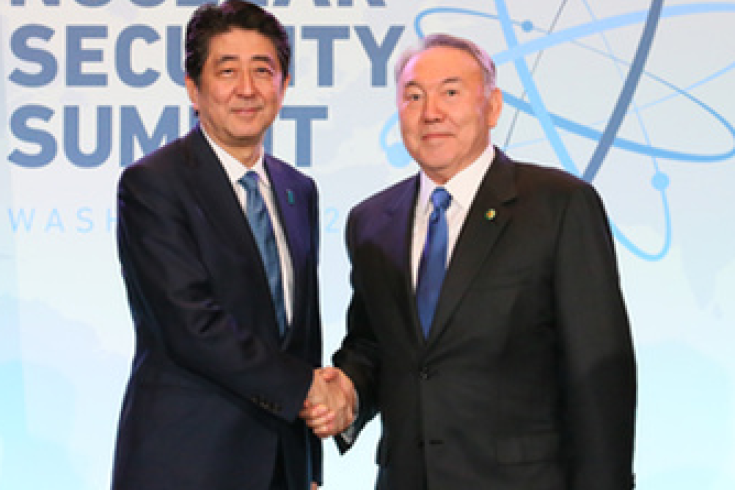Joint Statement by Japan and Kazakhstan on the CTBT
Joint Statement by Japan and Kazakhstan
31 March, 2016
1. On the occasion of the Nuclear Security Summit (NSS) in Washington D.C., Japan and Kazakhstan reaffirm our commitment to realizing a world free of nuclear weapons and consider it a main goal of humanity in the 21st century.
2. As this year marks the 20th anniversary since the opening for signature of the Comprehensive Nuclear-Test-Ban Treaty (CTBT) and the 25th anniversary of the closure of the Semipalatinsk nuclear test site in Kazakhstan, we renew our resolve to extend the non-use record of nuclear weapons until they are eliminated, and renew our strong commitment to achieving the early entry into force of the CTBT.
3. We welcome the fact that the CTBT has achieved near universal adherence with signature by 183 states and ratification by 164 states as of today, and urge all states that have not yet done so to sign and ratify the Treaty as early as possible. In particular, we urge the remaining eight Annex 2 states, whose ratification is necessary for the entry into force of the CTBT, to sign and ratify the Treaty without further delay and without waiting for others.
4. Pending the entry into force of the CTBT, we call upon all states to continue the moratorium on nuclear weapon test explosions, the process on which the closure of the Semipalatinsk test site in August 1991 had positive impact.
5. In this regard, we strongly deplore North Korea’s nuclear tests in 2006, 2009, 2013 and 2016 in clear violation of its international obligations and urge North Korea to refrain from conducting further nuclear tests. We strongly urge North Korea to fully comply with the relevant United Nations Security Council resolutions including the most recent resolution (UNSC/RES/2270) and the Joint Statement of the Six-Party Talks issued on 19 September 2005 and to take concrete steps towards denuclearization.
6. Noting that the International Monitoring System (IMS) of the CTBTO (Comprehensive Nuclear-Test-Ban Treaty Organization) has detected unusual seismic waveforms immediately after the nuclear test by North Korea on 6 January 2016, we commend that the CTBT verification regime has proven to be functioning successfully and reaffirm our commitment to supporting this important regime.

Japanese Prime Minister Shinz? Abe (left) and Kazakhstan's President Nursultan Nazarbayev at the 2016 Nuclear Security Summit
1 Apr 2016
